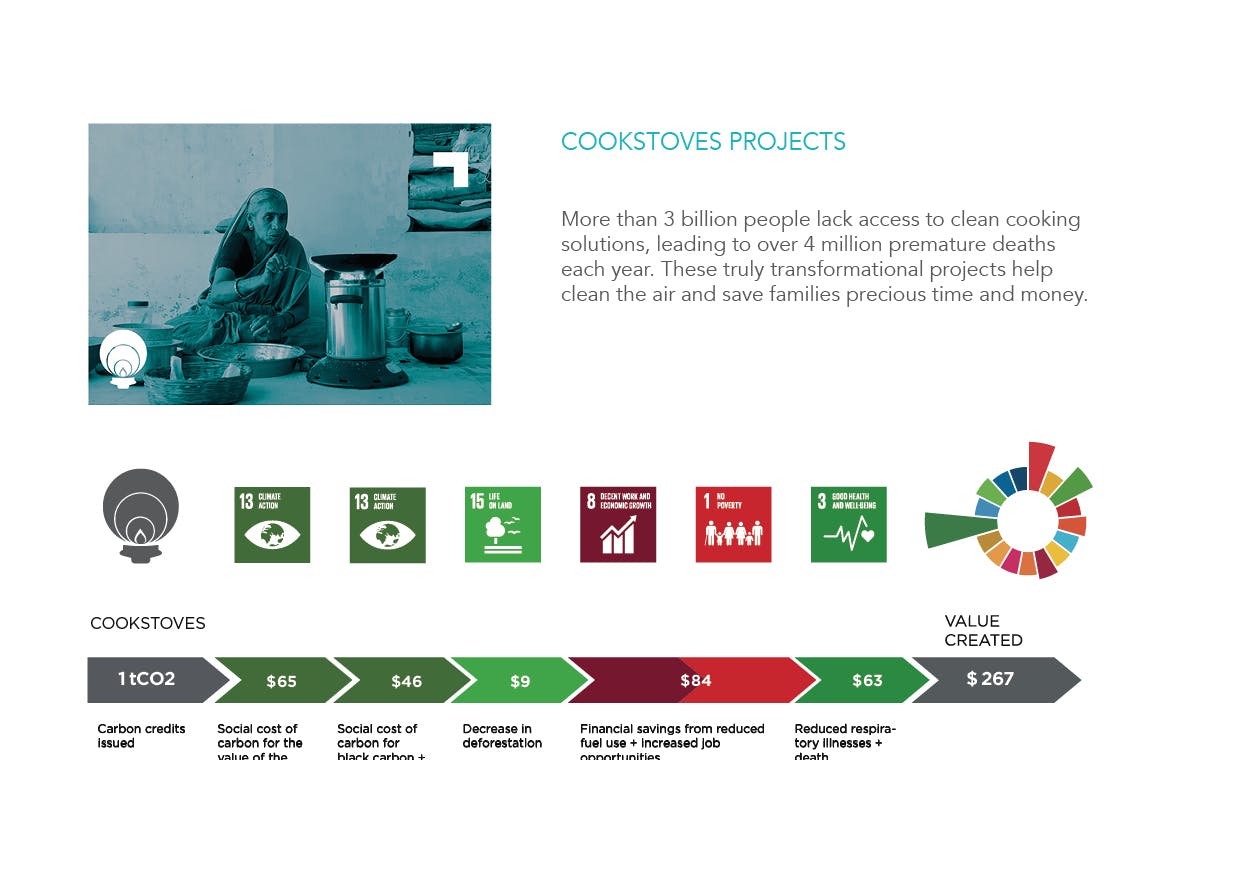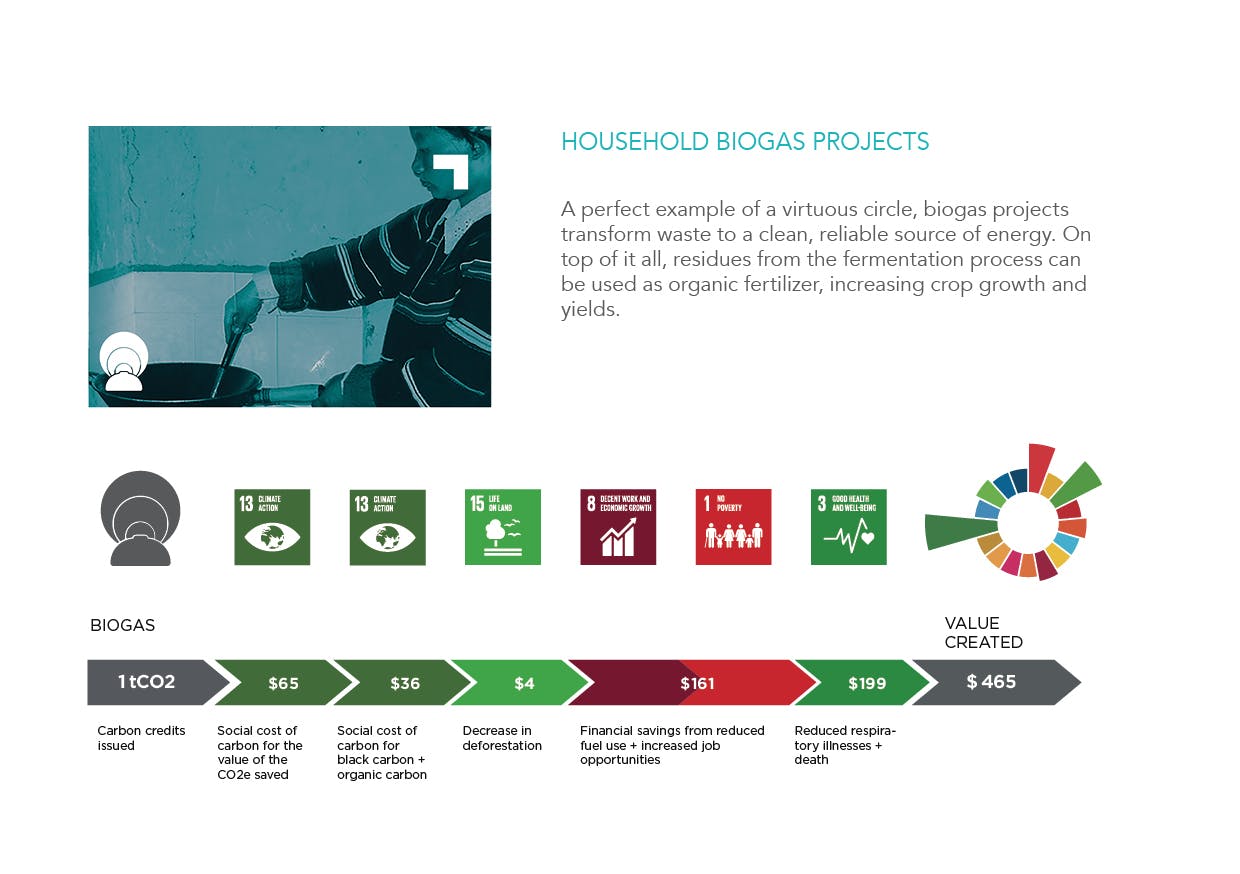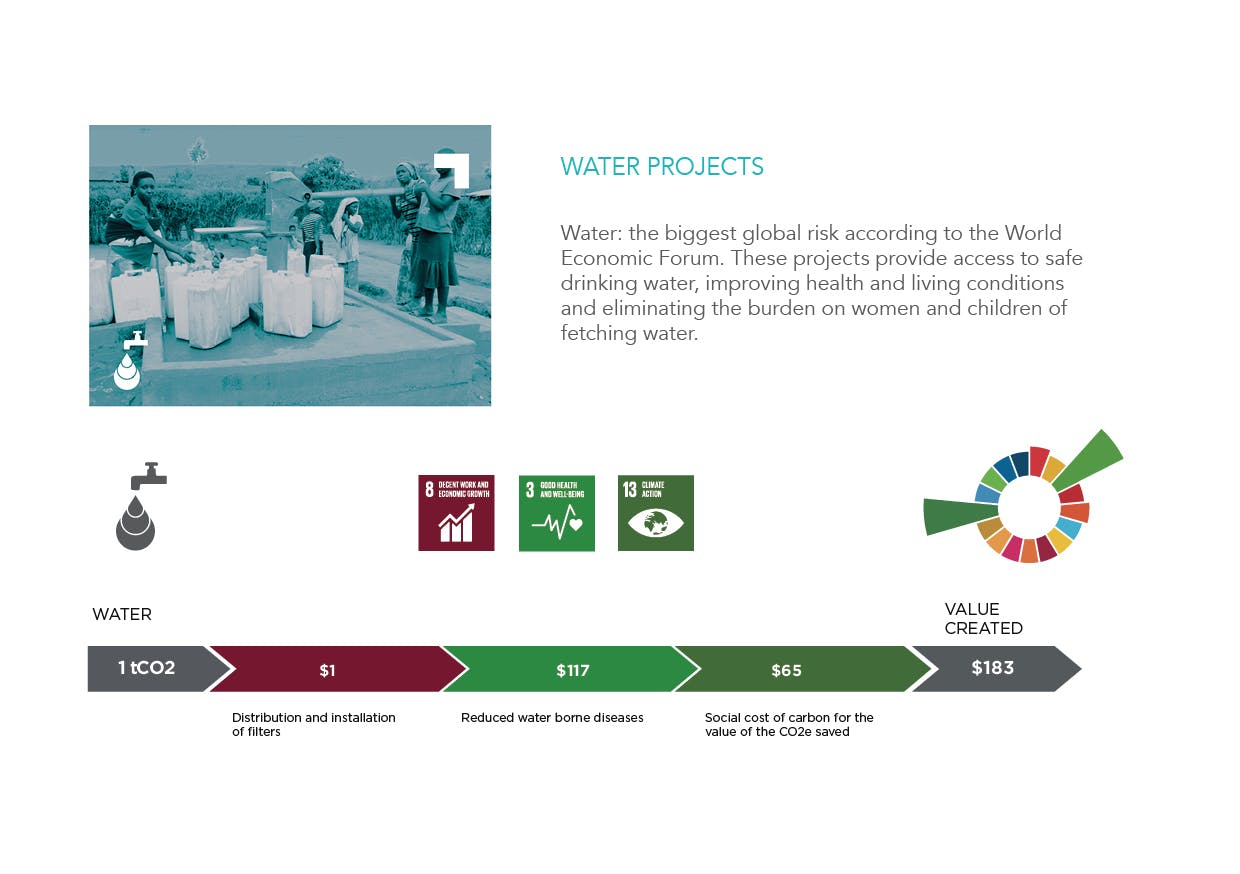Community service projects provide or improve access to basic social services at household, community or institutional level.
Activities include end-use energy efficiency such as improved cooking solutions or lighting projects; water, sanitation and hygiene (WASH) projects; and off-grid renewable energy. They provide those on the front lines of climate change with more time, money and opportunities to improve livelihoods and develop on a sustainable pathway.
Using less energy to perform the same tasks seems like a no brainer, but for households that don’t have access to basic human rights, such as safe water, health and care, or education, these savings can be truly transformational.
In the world today, 2.6 billion people -- more than a third of the world’s population -- do not have access to clean and energy efficient cooking technologies. And 785 million people -- 1 in 9 -- lack access to safe water for themselves and their families. And these communities are often found at the frontline of climate change.
THE GOLD STANDARD DIFFERENCE
To ensure money and support is directed to those that need it the most, Gold Standard-certified energy efficiency activities are mostly community-based, focused at providing access to basic social services.
By creating requirements that ensure energy efficiency projects focus on delivering both climate and sustainable development impacts within communities - Gold Standard improved cooking solutions, safe water access, and efficient lighting projects, not only reduce emissions but also help clean the air, improve health and living conditions, eliminate the burden on women and children of fetching firewood or water, and save families precious time and money for education and other activities.
Gold Standard-certified energy efficiency projects are community-based activities, providing those on the front lines of climate change with more time, money and opportunities to improve livelihoods and develop on a sustainable pathway.
We also support emission reductions at a larger scale through more traditional energy efficiency measures including, industrial and agricultural efficiency gains, as well as improved shipping processes or technologies.
For reasons of environmental integrity, we do not support project types that perpetuate the use of fossil fuels (e.g. fuel switch). Despite the marginal climate benefits of switching, for example, from coal to natural gas, we believe carbon finance should be directed to a fossil-free future.



